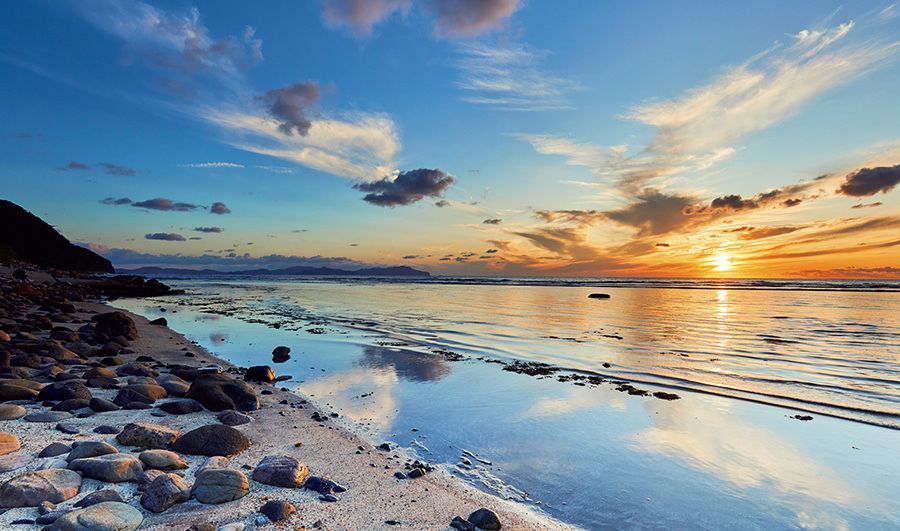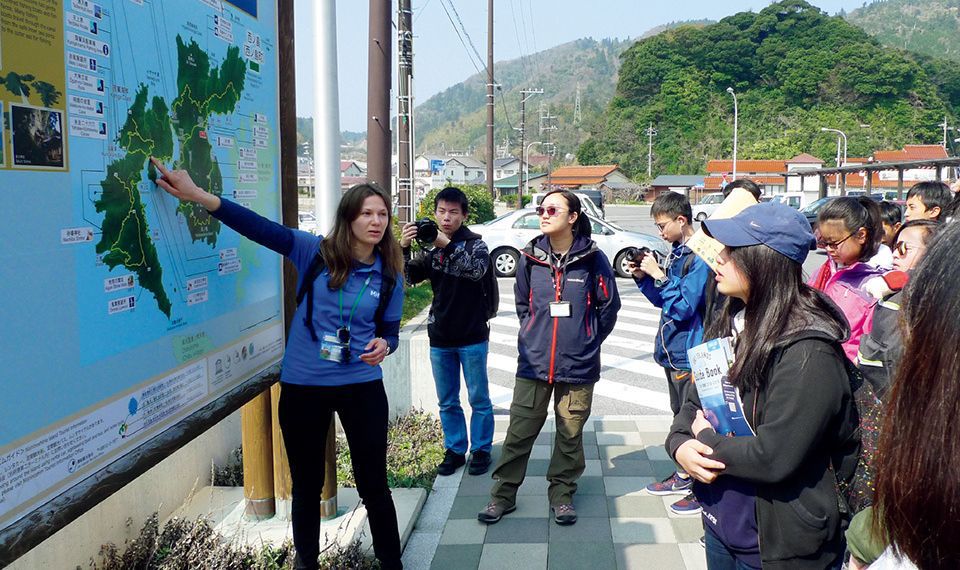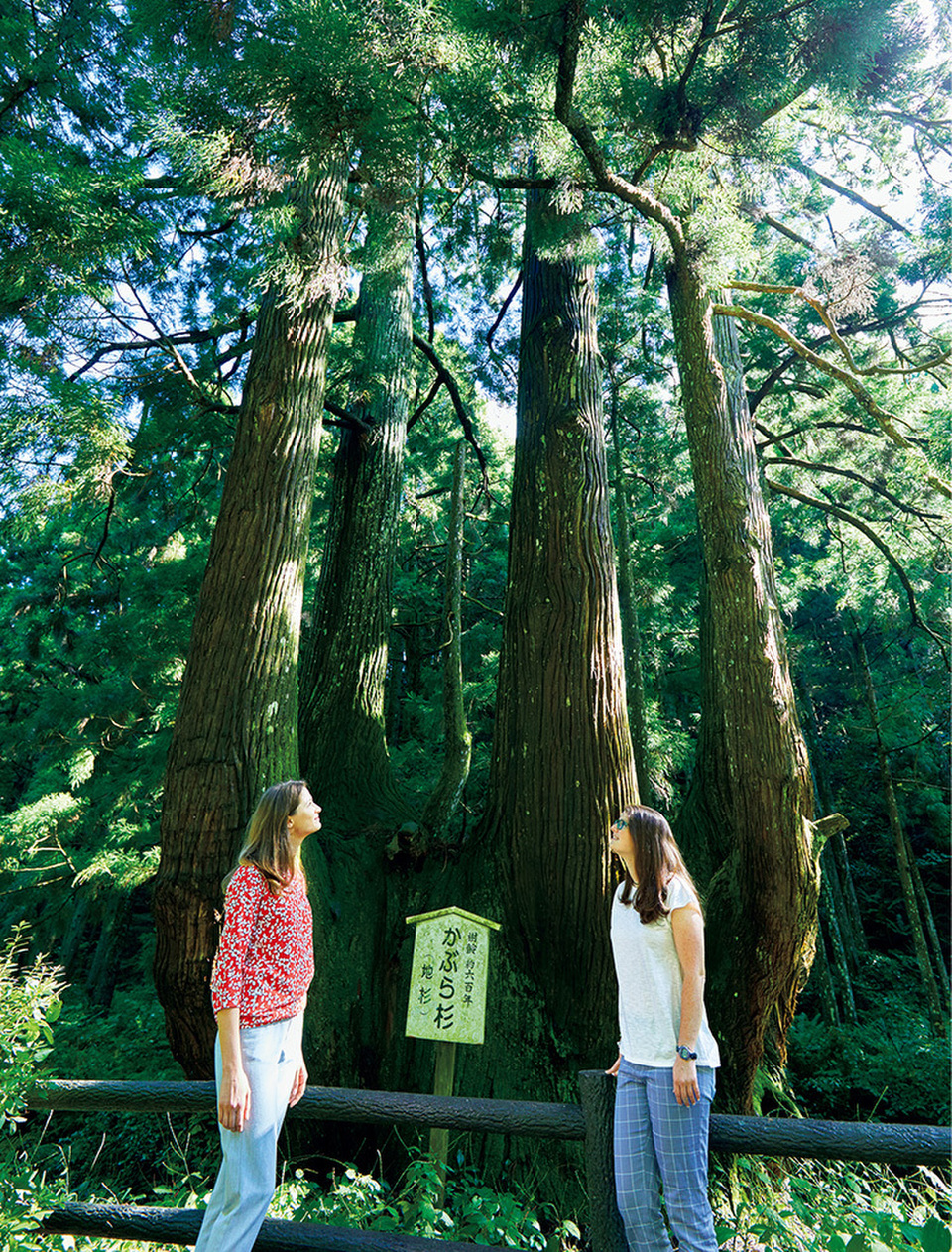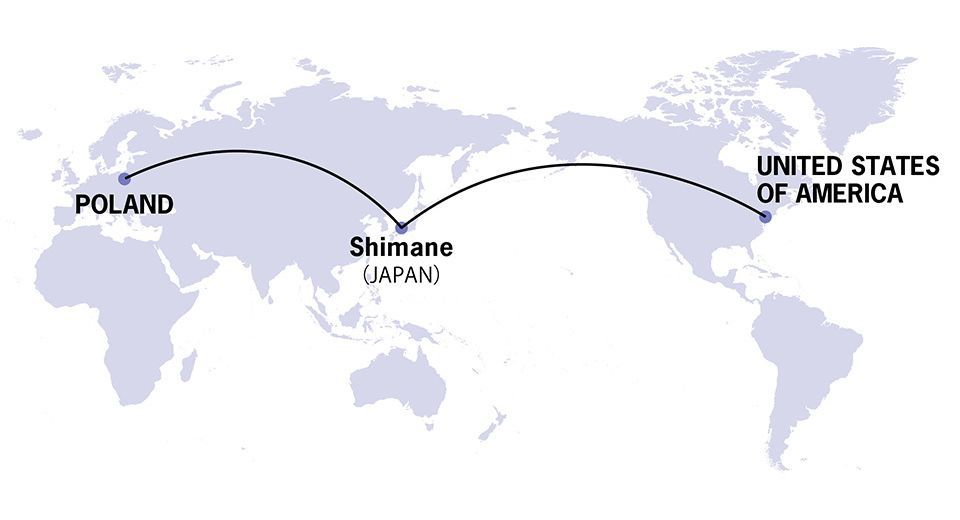Jagoda Woloszyn and Katrina Killinger, two Coordinators for International Relations of Oki Islands UNESCO Global Geopark in Shimane Prefecture, work as a bridge between foreign visitors and local people
Four large, inhabited islands and around 180 smaller ones in the Sea of Japan form the Oki Islands of Shimane Prefecture. These islands, created by volcanic eruptions about six million years ago, represent a unique geological and ecological heritage, and were designated as a Global Geopark in 2013. “The grandeur of nature is readily apparent at Oki Islands UNESCO Global Geopark, which is highly recommended even for beginners who know little about geology,” explain two Coordinators for International Relations, Jagoda Woloszyn, from Poland, and Katrina Killinger, from the United States.

Yui Maenosu Intertidal Shore Platform, on the western side of Dōgo Island, is formed of rock strata approximately 20 million years old.

Woloszyn explains the topography of Oki to visitors from Hong Kong. In recent years, groups of middle school students from Hong Kong have made field trips to the islands.
Woloszyn, who studied Japanese and international relations at her university in Poland, was assigned to Oki Geopark in 2016. In addition to serving as a guide and interpreter, she is active as a facilitator of exchanges between Oki and other geoparks around the world. Similarly, Killinger became fascinated with Japanese culture in high school, leading her to study the language in university. Followed by experience as an exchange student at Chukyo University in Nagoya, Aichi Prefecture, she was assigned to Oki in August 2019. She is excited about the idea of “learning about Japanese culture with deep roots in the past, such as ushi-tsuki (bull sumo) and other events and festivals that [she] had little opportunity to encounter in the urban areas of Nagoya.”

The Kabura-sugi Japanese cedar is said to be 600 years old. About 1.5m above the roots, the emerging trunk splits into six trunks that grow straight upwards. “Depending on the angle of view, you see something completely different,” explain the two coordinators.
One thing that all visitors agree on is that Oki’s main attraction is its abundant natural beauty—the sea, the mountains, the vast expanses of green, and numerous traditional buildings that remain to the present day. “Whenever I climb a mountain in Oki, I can always view the sea. Such fantastic scenery would be unimaginable in Poland,” says Woloszyn. Killinger comments that “The pure blue color of the Sea of Japan is utterly different from the Atlantic Ocean.” She is also fond of Oki’s cuisine. “Oki has an abundance of seafood, all of which is delicious. The first time I tasted one of the local specialties, sazae (horned turban sea snail), the unique texture surprised me, but now I’ve grown to like it.”
Drawn by the rich natural environment of the Oki Islands, tourists come from countries all over the world. “I hope that, by learning more about language and culture, I will be able to ease the anxieties of overseas visitors, at least to some degree,” Killinger says. Woloszyn adds, “The islanders also have anxieties about hosting visitors. We work as coordinators so that both parties can interact comfortably.” She continues, “When I see Oki-born high-schoolers working hard to communicate in English with students from Hong Kong on a field trip, it brings me tremendous joy. I myself am not a native speaker of English; but being able to use English makes it possible to interact with people all over the world. As a Coordinator for International Relations, I want to assist the youngsters of Oki so that they can use English to communicate with people from around the world.”

Katrina Killinger
Originally from South Carolina in the United States, she started to learn Japanese from the age of 16. From her second year in college she began a full-time course of study, including one year as an exchange student at Chukyo University in Nagoya. In 2019 she became a Coordinator for International Relations assigned to Okinoshima-Town specifically to Oki Islands UNESCO Global Geopark.
Jagoda Woloszyn (right)
Originally from Rudnik nad Sanem in Poland, she specialized in Japanese and international relations at Jagiellonian University, and also studied under the Kanazawa University program for Japanese Language and Culture in Japan. In 2016, she became a Coordinator for International Relations and was assigned to Shimane Prefecture, specifically to Oki Islands UNESCO Global Geopark.































